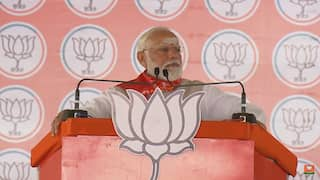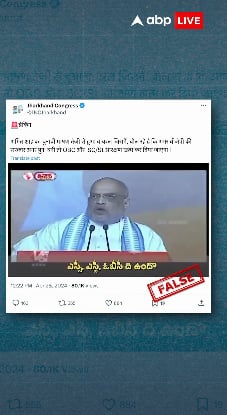
Navigating Capital Gains Tax: Insights For Smart Investment Planning
Capital gains tax is a levy imposed on the profit realised from the sale of assets, similar to the global concept

By Sujit Bangar
Investing wisely is not just about making the right financial decisions; it's also about optimising your returns by managing your tax liabilities effectively. One critical aspect of this tax management is understanding and navigating capital gains tax in the context of the Indian income tax regime. In this article, I'll delve into the intricacies of capital gains tax in India and provide insights to help you plan your investments smartly.
Understanding Capital Gains Tax on sell of listed listed equity in India, capital gains tax is a levy imposed on the profit realised from the sale of assets, similar to the global concept. However, the Indian tax system has specific rules and rates for calculating.
Capital Gains Tax
Types of Capital Gains in India in sell of equity shares in India can be categorised into two primary types: Short-term and Long-term, akin to global classifications:
- Short-Term Capital Gains (STCG): These are gains from assets held for less than or equal to one year. STCG is typically taxed at 15 per cent on your gains.
- Long-Term Capital Gains (LTCG): LTCG results from holding assets for more than one year. In the Indian context, LTCG on listed securities is taxed at a flat rate of 10 per cent without the benefit of indexation.
- Offsetting Capital Losses: You can offset capital losses against capital gains. Consider selling underperforming assets to offset gains and reduce your overall tax liability.
- Diversify Your Portfolio: Diversification can reduce risk and provide tax advantages. By holding a mix of assets, you can potentially minimize your overall capital gains tax exposure.
- Losses is an internal part: In the context of Indian income tax, you can carry forward losses from Long-Term Capital Gains (LTCG) and Short-Term Capital Gains (STCG) up to 8 years, to offset against future gains. This means that if you incur losses in either category, you can use those losses to reduce your taxable gains in future years within the specified time frame.
- Grandfathering: It refers to a special provision that protects existing investments from adverse tax implications when new tax rules or regulations are introduced. This provision ensures that previous tax benefits or conditions continue to apply to investments made before the changes, safeguarding the interests of taxpayers. It is a valuable resource for investors as it maintains the stability and predictability of their financial planning by not subjecting them to sudden tax law alterations.
- Tax-Loss Harvesting: This strategy involves selling underperforming assets to offset gains from profitable investments. By strategically managing your portfolio, you can minimise your overall capital gains tax liability. For example, Pratik had purchased shares of scrip A for Rs 1,00,000/- and sold them after a year for Rs 3,00,000/-. His tax liability will be Rs 10,000/- as {(Gain of Rs 2,00,000 less initial LTCG Exemption Rs 1,00,000/-= Net LTCG Rs 1,00,000/-) *0.1}. He also held shares of scrip B, purchased for Rs 50,000/- and sold them within a year for Rs 1,00,000/-. His tax liability on STCG will be Rs 7,500/- {(100,000 – 50,000) *0.15}. Thus, total tax liability of Pratik is (Rs 10,000 plus Rs 7,500) Rs 17,500.
This tax amount can be reduced through tax loss harvesting. In this example, Pratik might be having some shares which are incurring losses. He can sell such shares and book the loss. Such loss can be set off against the gains he made in scrip A and B. Suppose, Pratik has scrip C which has made short term capital loss of Rs. 1,00,000. Then he can set of Rs. 50,000 of such loss against STCG and tax liability on STCG will be zero. Remaining loss of Rs. 50,000 can be set off against LTCG and it will reduce tax liability on LTCG to Rs 5000 from Rs.10,000. Thus, through tax loss harvesting, Pratik could save Rs.12,500 in taxes.
However, the rules for such set off must be kept in mind that you cannot set off long-term capital losses against short-term capital gains. Whereas, short-term capital losses can be set off against either short-term capital gains or long-term capital gains. Tax loss harvesting is not expressly prohibited in Income Tax Act and can be legitimately used to bring down the tax liability on capital gains.
In conclusion, navigating capital gains tax requires a proactive approach and a deep understanding of tax laws. It's a crucial element of smart investment planning that, when managed effectively, can help you retain more of your hard-earned gains. Remember that tax laws can change, so it's essential to stay informed and adapt your strategies accordingly. With the right knowledge and guidance, you can make informed investment decisions that align with your long-term financial objectives.
The writer is a former IRS officer and founder at TaxBuddy.com.
[Disclaimer: The opinions, beliefs, and views expressed by the various authors and forum participants on this website are personal and do not reflect the opinions, beliefs, and views of ABP News Network Pvt Ltd.]
Top Headlines
Trending News

and tablets




































